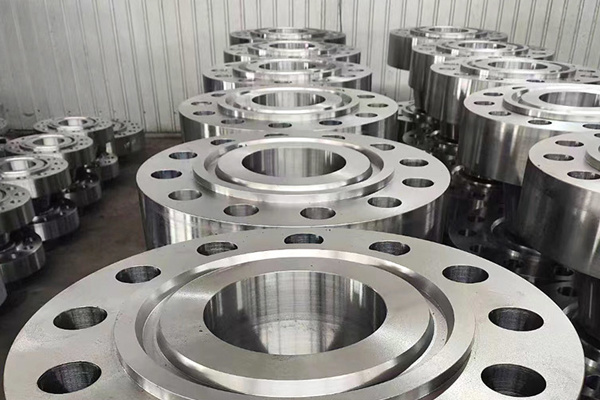Understanding the Workings of a Flange: The Unsung Hero of Connections
2025-09-15
Flange
What is a Flange?
Flanges are like the unsung heroes in the world of manufacturing and construction. You might not notice them at first glance, but these circular pieces of material are crucial for joining pipes, valves, and other components. They serve as a vital connection point, ensuring everything stays locked and loaded. But have you ever wondered how they actually work? Let's dive in!
The Basics of Flanges
So, what's the deal with flanges? At their core, flanges are flat pieces of metal that feature a hole pattern around the edge. This allows them to be bolted together with counterpart flanges. Think of them as the connectors in a team – without a solid link, things could fall apart!
Types of Flanges
Now, hold your horses! Before getting lost in the technicalities, let's look at the different types of flanges that exist:
- Weld Neck Flange: This one's got a long neck that helps it fit snugly into a pipe. Perfect for high-pressure situations!
- Slip-On Flange: As the name suggests, this flange slips over the pipe. It's easy to install but requires welding for a secure fit.
- Blind Flange: This flange is a complete circle with no hole in the center. It's great for sealing off ends of pipes.
- Threaded Flange: Featuring internal threads, this one screws onto the pipe, making it easy to install without welding.
How Do Flanges Work?
Alright, let's get into the nitty-gritty! Imagine you're building a bridge, and you need to connect two massive sections together. That's where the flange comes in! Here's how they work:
1. **Alignment:** First off, the flanges are aligned perfectly with each other. A little off, and the whole thing could be a disaster!
2. **Bolting:** Next, bolts are inserted into the holes and tightened. This creates a super strong bond between the flanges.
3. **Sealing:** Many flanges come with gaskets that help seal the connection, preventing leaks. You wouldn't want to spring a leak, would you?
4. **Pressure Handling:** Flanges are designed to handle a variety of pressures, which makes them versatile for different applications. From water pipelines to high-pressure gas lines, they've got you covered!
Applications of Flanges
Let's not kid ourselves; flanges are everywhere! Here are just a few places you'll find them:
- Construction: Used in building frameworks and piping systems.
- Oil and Gas: Essential for connecting pipes in refineries and drilling sites.
- Manufacturing: Common in machinery and equipment, ensuring everything runs smoothly.
- Aerospace: Critical for connecting components in aircraft and spacecraft.
Why Are Flanges Important?
It's no exaggeration to say that flanges are fundamental to the functionality of many systems. Without them, well, we'd be in a bit of a pickle! Here are a few reasons why they matter:
- Safety: Properly installed flanges ensure that systems remain leak-proof and secure.
- Efficiency: They allow for easy assembly and disassembly, which is crucial for maintenance.
- Cost-Effectiveness: Using flanges can reduce the need for complex fittings, saving time and money!
In Conclusion
Flanges may not be the first thing that comes to mind when you think about engineering, but they play an indispensable role in connecting the dots. Whether in a skyscraper's plumbing or the intricate systems of an aircraft, these little circular wonders are everywhere! So next time you see a flange, give it a nod of appreciation. It's doing a lot more than you might think!
Key words:
RELATED INFORMATION
API 6A TYPE 6BX flanges and blinds in ANSI/API Spec 6A specification
2024-05-22
The Essential Guide to Carbon Steel Plate Flanges in Construction and Decoration
2024-05-22












